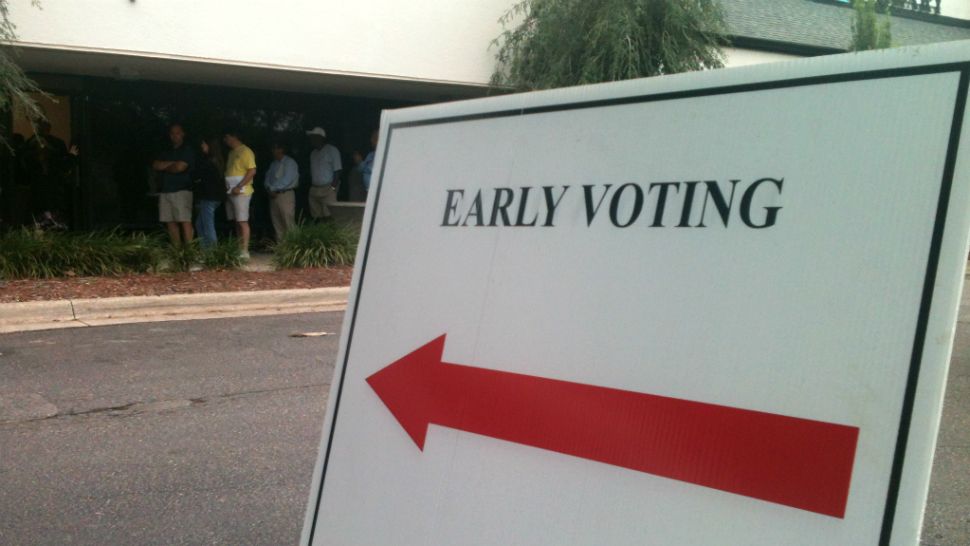ORLANDO, Fla. -- Early voting for Florida’s upcoming primary election will begin Aug. 17.
- Early voting for primary begins Aug. 17
- 770,000 people registered to vote in Orange County
- RELATED links:
Several Orlando-area races could be decided by the Aug. 28 election, while other races will narrow a field of candidates for the November ballot.
More than 770,000 people are registered to vote in Orange County alone. Orange County Supervisor of Elections Bill Cowles says to date, they’ve mailed out 125,000 vote-by-mail ballots.
There are three ways to vote: mail, early-voting, or on Election Day, where there will be 247 polling locations open.
Wednesday, the Supervisor of Elections office tested ballot machines.
Tests are required by state law to ensure machines are accurately recording votes.
“One of the things people want to make sure of is the ballots are properly counted and software is properly reading them,” said Orange County Supervisor of Elections Bill Cowles.
The State of Florida is spending $19 million, with help of a federal grant, to help counties improve election security.
Orange County was allocated $766,070, of which Cowles says $408,808 is being used to upgrade system software, physical security, and security audits.
“We are backing up our systems, multiple times, in multiple ways,” Cowles said.
Cybersecurity is also a growing concern for electorates.
Cowles says the county’s ballot tabulation machines are never connected to the internet, allowing them to be immune to potential hacking. He adds that paper ballots also help fend of potential impropriety.
“Here in Florida we have paper (ballots) and we vote on paper so your vote can’t flip,” Cowles said. “The nice part about it is if somebody was to do something, and we were questioning the results, we have paper ballots, and we can recreate the whole election with those paper ballots.”
State law requires paper ballots are stored for 22 months.
Most of those ballots come in well before Election Day.
Cowles said 73 percent of votes cast during the 2016 election were made by mail-in and early voting methods. Primary elections, however, often have far smaller turnout numbers compared to General Elections.
The concern, Cowles says, is that primary elections can have just as significant impacts.
“The decisions about your quality of life right here in Central Florida is going to be decided on Aug. 28,” Cowles said.
Florida is a “closed primary” state, meaning you have to be a registered member of a party to vote for that party’s candidates.
In the case of governor, for example, only registered Republicans can vote for GOP candidates in the race, while only registered Democrats can vote for Democrat candidates in the race.
Nonpartisan races are open for all voters. Those races include county mayor, school chairman, and school board.
Cowles said those non-partisan races will only carry over to the November ballot if none of the candidates in the race earn 50% + 1 of the vote.
Orange County Public Schools is also asking voters to extend an existing millage. While the measure needs 50% + 1 of the vote to pass, it too will only be featured on the August Primary Election ballot.
Learn more about the races, candidates, and when and where to vote with the Spectrum News 13 Voting Guide.



